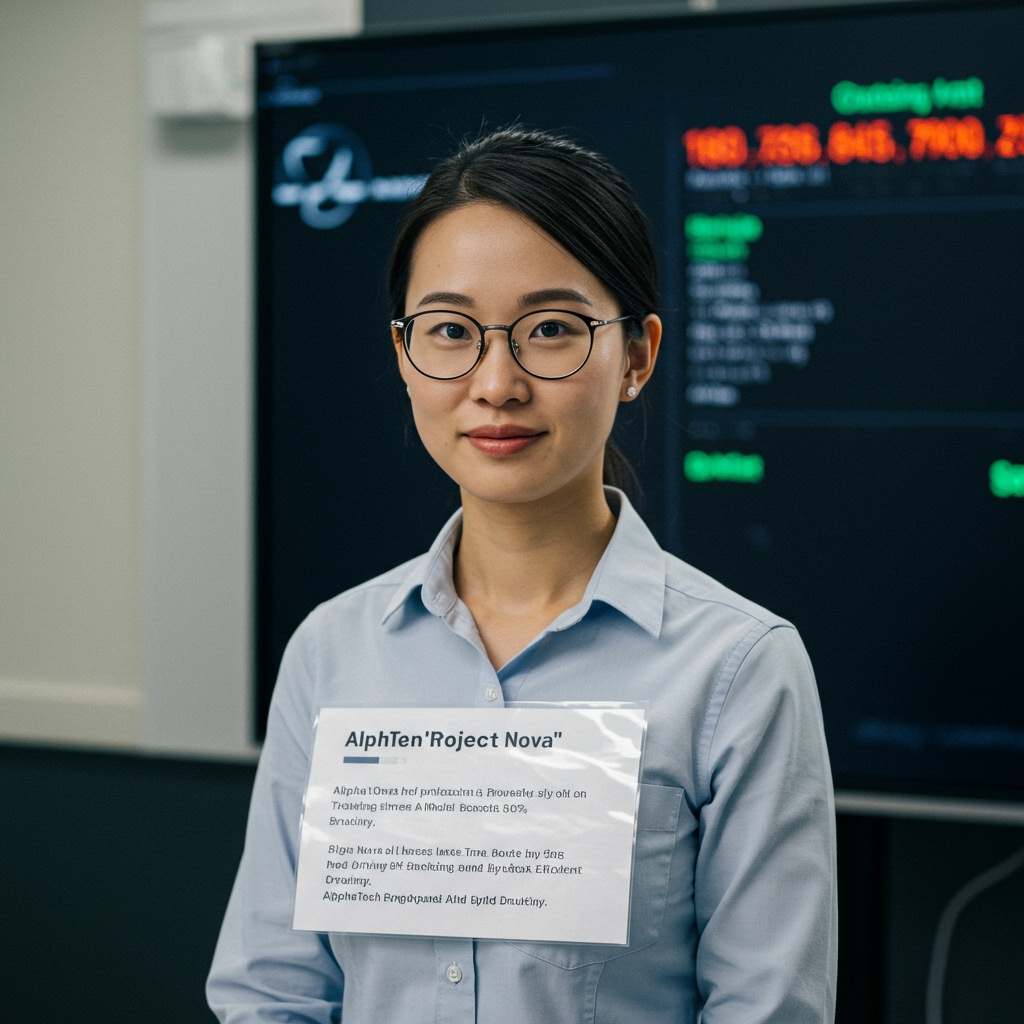AlphaTech Launches Groundbreaking “Project Nova” AI Model
SAN FRANCISCO, CA – AlphaTech, a global leader in artificial intelligence innovation, today announced a significant technological leap with the official unveiling of its new AI model, codenamed “Project Nova.” The highly anticipated model was revealed at the company’s prominent “Future Forward” summit held on February 10th, 2025, drawing considerable attention from industry experts, investors, and policymakers alike.
Project Nova represents what AlphaTech executives are hailing as a major efficiency breakthrough in the field of deep learning and AI model development. The company has made ambitious claims regarding the model’s performance metrics, stating that Project Nova is capable of reducing the training time required for complex AI models by a remarkable 50% when compared to its predecessors within AlphaTech’s own technology portfolio. Furthermore, the new model reportedly achieves this accelerated training while simultaneously lowering energy consumption by 30%, addressing critical concerns around the environmental footprint and operational costs associated with large-scale AI deployments.
Addressing Key Industry Challenges: Efficiency and Sustainability
The technical specifications provided by AlphaTech underscore the potential impact of Project Nova on various sectors. The claimed 50% reduction in training time is particularly significant for researchers and developers who often face computational bottlenecks and lengthy waiting periods when iterating on large AI models. This acceleration could drastically shorten development cycles, allowing for faster experimentation, more rapid deployment of new AI capabilities, and quicker adaptation to evolving data sets and problem domains.
The accompanying 30% reduction in energy consumption is equally crucial in an era where the energy demands of AI training and inference are escalating rapidly. Data centers powering AI infrastructure consume vast amounts of electricity, leading to both high operational expenses and environmental concerns. Project Nova’s reported efficiency gains could contribute substantially to more sustainable cloud computing practices, reduce the cost barrier for smaller organizations accessing advanced AI, and potentially mitigate some of the environmental impact associated with the proliferation of AI technologies.
Widespread Implications Across Cloud, Science, and Enterprise
The potential implications of Project Nova extend across several high-impact areas. For cloud computing efficiency, the model could enable service providers to offer faster, cheaper AI training services, making advanced AI more accessible globally. Cloud infrastructure could potentially support more training tasks concurrently or achieve existing workloads with fewer resources.
In the realm of scientific research simulations, where complex models are used to simulate everything from climate change patterns to protein folding, the speed and energy efficiency offered by Project Nova could unlock new possibilities. Researchers could run more sophisticated simulations, test hypotheses more rapidly, and potentially accelerate discoveries in fields ranging from materials science to medicine and astrophysics.
For enterprise AI deployments, the benefits could manifest in faster development and deployment of custom AI solutions, reduced operational costs associated with running AI models, and improved performance for tasks such as data analysis, predictive maintenance, and customer service automation. Businesses could potentially gain a competitive advantage by leveraging AI more effectively and efficiently.
Market Response and Regulatory Landscape
Initial market reaction to the Project Nova announcement has been positive. Following the reveal at the “Future Forward” summit, AlphaTech’s stock experienced a notable surge, closing the day with an 8% increase. This uptick reflects investor confidence in the potential commercial viability and disruptive nature of the new AI model.
However, the announcement has also drawn the attention of regulatory bodies. Authorities in both the EU and the US are reportedly beginning initial assessments of Project Nova’s potential market impact. Given the increasing focus on regulating powerful AI technologies and their influence on competition, employment, and society, it is not unexpected that a breakthrough of this magnitude would trigger scrutiny. Regulators will likely be examining how Project Nova could affect the competitive landscape in the AI industry, its implications for digital infrastructure, and its broader societal consequences.
AlphaTech has indicated it will engage with regulatory bodies to address any concerns and provide transparency regarding Project Nova’s capabilities and intended applications. The company’s executives emphasized their commitment to responsible AI development and deployment during the summit.
The Future of AI Efficiency
The unveiling of “Project Nova” marks a significant moment for AlphaTech and the broader AI industry. While the company’s claims require independent verification and the long-term impact remains to be seen, the potential to drastically cut training time and energy consumption addresses fundamental challenges limiting the scalability and sustainability of advanced AI. As regulators begin their assessments and the industry digests the implications, the focus will shift to the practical implementation of Project Nova and whether it lives up to the high expectations set by AlphaTech’s ambitious announcement at the “Future Forward” summit on February 10th, 2025.





